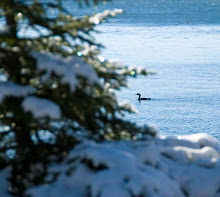MESSALONSKEE LAKE, Oakland
Midas: 5280, Basin: Northern (02; 50' hole by Brown's Is)
The Maine Department of Environmental Protection (ME-DEP) and the Volunteer Lake
Monitoring Program (VLMP) have collaborated in the collection of lake data to evaluate present
water quality, track algae blooms, and determine water quality trends. This dataset does not
include bacteria, mercury, or nutrients other than phosphorus.
Water quality monitoring data for this Messalonskee Lake station has been collected since 1991.
During this period, 2 years of basic chemical information was collected, in addition to Secchi
Disk Transparencies (SDT). In summary, the water quality of Messalonskee Lake is considered
to be average, based on measures of SDT, total phosphorus (TP), and Chlorophyll-a (Chla). The
potential for nuisance algal blooms on Messalonskee Lake is low.
Water Quality Measures: Messalonskee Lake is a slightly colored lake (average color 25 SPU).
This station shows an average SDT of 5.6m (18.4ft). The range of water column TP for this
station on Messalonskee Lake is 8 - 10 parts per billion (ppb) with an average of 9 ppb; Chla has
not been measured at this station. Recent dissolved oxygen (DO) profiles show high DO
depletion in this area of the lake. The potential for TP to leave the bottom sediments and become
available to algae in the water column (internal loading) is moderate. Oxygen levels below 5
parts per million stress certain cold water fish, and a persistent loss of oxygen may eliminate or
reduce habitat for sensitive cold water species.
The flushing rate is the amount of time required for the lake water to be renewed each year. The
average flushing rate is about 1-1.5 flushes per year for Maine lakes. The overall flushing rate for
Messalonskee Lake is 1.59 flushes per year. Flushing at this station is greater due to the
narrowing of the lake at the northern end.
The Belgrade Regional Conservation Alliance (BRCA) has received federal funding obtained
under DEP's Non-Point Source Program to conduct a watershed survey in the Messalonskee Lake
direct watershed (2001) and expand the Great Pond Watershed Management Plan to include all
the lakes in the Belgrade Chain including Messalonskee Lake (2002). The Belgrade Lakes
Conservation Corps, operating under the 'umbrella' of BRCA, has been operating in the chain of
Belgrade Lakes since 1996. The Corps employs high school age young adults to implement
erosion controls that do not require heavy equipment (rip-rap, plunge pools, buffer plantings).
Cost is shared between homeowners and supporters of the Corps.
The Snow Pond/Messalonskee Lakes Association, formed in 1990, can be contacted at PO Box 532, Oakland, ME, 04963.

No comments:
Post a Comment